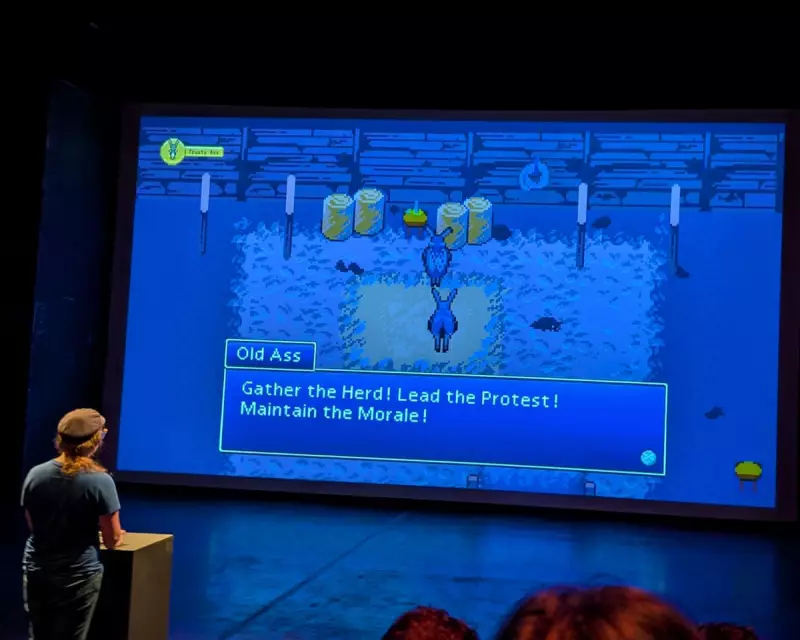
In an extraordinary fusion of digital entertainment and live performance, the experimental game Assesmasses is redefining what it means to play together. What began as an unconventional gaming experience has evolved into something far more profound: a collective piece of performance art where the audience becomes the performer.
The Stage Is Set: Gaming Meets Live Audience
The transformation occurs when players gather in physical spaces, their smartphones serving as both controller and connection point. Unlike traditional gaming experiences where participants focus solely on their screens, Assesmasses turns the entire venue into an interactive stage. The crowd's collective decisions, reactions, and movements become integral to the gameplay itself.
A Collective Consciousness Emerges
"What we're witnessing isn't just people playing a game together," explains one organiser of these live events. "We're seeing the emergence of a temporary collective consciousness. The audience stops being passive observers and becomes an active, breathing component of the art."
The game's mechanics deliberately foster this transformation. Players must coordinate, communicate, and sometimes sacrifice individual success for the group's benefit. The result is a fascinating social experiment that reveals as much about human behaviour as it does about gaming innovation.
Beyond Entertainment: The Artistic Implications
This blending of gaming and performance art represents a significant shift in how we conceptualise interactive entertainment. The traditional boundaries between performer and audience, between artist and participant, are becoming increasingly porous.
- Shared emotional experiences create bonds between strangers
- Spontaneous leadership emerges from the crowd
- Collective problem-solving becomes an artistic expression
- The space between digital and physical becomes a new creative frontier
The Future of Social Gaming
As technology continues to evolve, experiences like Assesmasses point toward a future where gaming routinely transcends the screen. The success of these live events demonstrates a growing appetite for shared digital experiences that prioritise human connection over isolated gameplay.
"We're not just playing games anymore," reflects one regular participant. "We're creating temporary communities, exploring social dynamics, and producing something beautiful together. It's gaming, but it feels like something much more significant."
This innovative approach to interactive entertainment suggests that the most compelling digital experiences of tomorrow may be those that best understand how to bring people together in the physical world, using technology not as a replacement for human connection, but as its catalyst.





